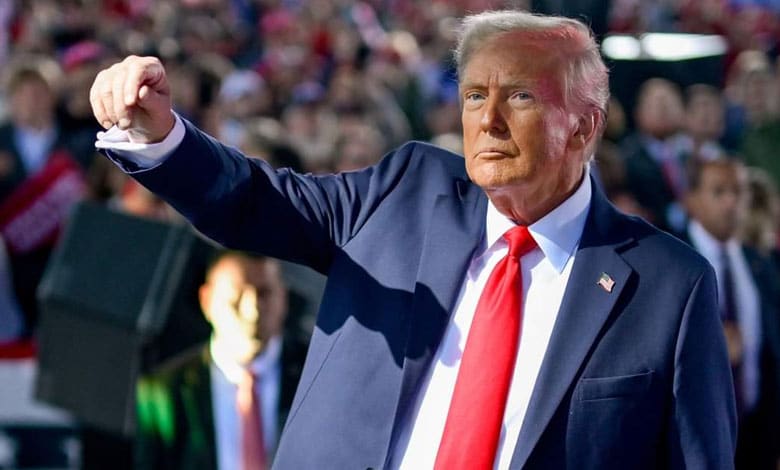Trump Signs Executive Order to End Birthright Citizenship: What It Means and What Happens Next

Washington: President Donald Trump has taken a bold step toward ending the longstanding policy of birthright citizenship with an executive order that challenges the constitutional guarantee that children born in the U.S. automatically become citizens, regardless of their parents’ immigration status.
Trump’s executive order, signed late Monday, fulfills a campaign promise, but its success remains uncertain as legal challenges from state attorneys general and immigrant rights groups move forward.
Table of Contents
What Is Birthright Citizenship?
Birthright citizenship refers to the principle that anyone born on U.S. soil is automatically granted citizenship, regardless of their parents’ immigration status. This includes children born to individuals in the U.S. on tourist or temporary visas, or even those who are in the country illegally. This policy has been in place for decades and is enshrined in the 14th Amendment of the U.S. Constitution.
However, President Trump and his allies argue that the interpretation of the 14th Amendment needs to be revised, pushing for tougher standards for citizenship.
What Does Trump’s Executive Order Say?
Trump’s executive order questions whether the 14th Amendment’s citizenship guarantee applies to all children born in the U.S. The 14th Amendment, ratified in 1868 after the Civil War, states: “All persons born or naturalized in the United States and subject to the jurisdiction thereof, are citizens of the United States and of the State wherein they reside.”
The order specifically excludes children whose mothers were not legally in the U.S. at the time of birth, as well as children born to parents who are not U.S. citizens or lawful permanent residents. The order further directs federal agencies to refrain from recognizing citizenship for individuals in these categories.
The policy is set to take effect on February 19, 2025, 30 days after the signing of the order.
The History of Birthright Citizenship
While the 14th Amendment has guaranteed birthright citizenship since its ratification, it has not always applied to all groups. Native Americans, for instance, were not granted citizenship until 1924. One landmark case in 1898, Wong Kim Ark v. United States, affirmed birthright citizenship for children born to immigrant parents, setting a precedent for citizenship based on birth in the U.S.
However, advocates of immigration restrictions argue that the ruling may not apply to children born to parents without legal status, and that the courts may need to reconsider this issue in light of changing circumstances.
Legal Challenges to Trump’s Executive Order
Trump’s executive order has sparked immediate legal opposition. Eighteen states, the District of Columbia, and the city of San Francisco have filed lawsuits in federal court, seeking to block the order. New Jersey Attorney General Matt Platkin voiced opposition to the order, stating, “Presidents have broad power but they are not kings,” emphasizing that the president cannot undo a constitutional right with an executive action.
Immigrant rights organizations, including chapters of the American Civil Liberties Union (ACLU) in New Hampshire, Maine, and Massachusetts, have also filed a lawsuit. The lawsuit highlights the case of “Carmen,” a pregnant woman who has lived in the U.S. for over 15 years without citizenship. The suit argues that stripping children born under these circumstances of citizenship denies them their rightful membership in U.S. society.
States joining the lawsuit include New Jersey, California, Massachusetts, Colorado, Connecticut, Delaware, Hawaii, Maine, Maryland, Michigan, Minnesota, Nevada, New Mexico, New York, North Carolina, Rhode Island, Vermont, and Wisconsin.
What Happens Next?
As the lawsuits progress, the future of birthright citizenship in the U.S. remains uncertain. With the legal battle intensifying, the issue is expected to be debated in courts across the nation, and possibly even the Supreme Court, in the coming months. The outcome could have a profound impact on U.S. immigration policy and the interpretation of the Constitution.

